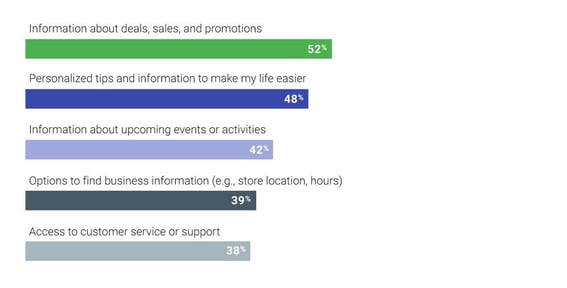
The digital world continues to evolve and transform the way businesses connect with their customers. With this in mind, the fast pace of evolution of digital marketing can be overwhelming for businesses. Innovations such as machine learning, advanced analytic insights, and voice search all contribute to the most recent set of innovations fueling digital marketing best practices.
With that in mind, a closer look at the power of voice search optimization should make its importance apparent. This includes a brief overview of the statistical importance of this emerging trend and how prevalent voice search already is in our world today.
Furthermore, we will examine exactly how consumers are using voice search today. How relevant is a voice search optimization strategy for your business? Certain sectors and specific businesses can benefit the most from voice optimization, which will be covered as well.
Finally, a brief guide will empower your digital marketing efforts to start to develop a strong foundation for the future of voice search optimization. While the young trend of voice search continues to grow, the market looks poised to become nearly as prevalent in our world as mobile optimization in the early 2010s
With that in mind, let’s dive right in and take a look at how your business can prepare for voice search optimization.
Table of Contents
- Statistical Importance of Voice Search Optimization
- Benefits of Voice Search for your Business
- How do users use voice search today?
- More convenient, Allows multitasking & Instant Answers
- Benefits for local business
- Repurpose Content
- How to rank in search for voice?
- Be Concise with Natural Content
- Provide an Answer in Context
- Use Structured Data
- Keyword Selection
- Remember, Mobile Friendly is Voice Friendly – Use AMP
- Expand Beyond Google
Statistical importance of Voice Search Optimization
Today, surely you have seen someone use Siri, Google’s Echo, or an Amazon Alexa device. This powerful new technology, created with advancements in voice recognition software empower these devices to help in our everyday lives.
With the convenience of voice search, reports estimate by 2020, 50% of all searches online will be via voice search and 30% of searches will be done without a screen at all. Furthermore, to highlight the importance of voice search optimization, from 2018 to 2022, the percentage of US homes with a smart speaker will rise from 13% to 55%. Another amazing statistic, according to PRNewswire, Voice-based shopping is expected to jump to $40 billion by 2022.
With huge amounts of spending taking place via devices that may not even have a screen, it is vital your business prepares for the future of online search by optimizing for voice search. That being said, let’s take a closer look at the benefits of voice search and how to best optimize your digital content to appear in voice search results.
Benefits of Voice Search for your Business
While voice search is still in its infancy, there remains a ton of opportunity for businesses to benefit from the powers of voice search optimization. How consumers are using voice search and understanding best practices for your voice search optimization strategy can give your content a leg up against competitors.
How do users use voice search today?
Today billions of voice-activated searches are taking place each and every day. With that in mind, Google developed a series of surveys to explore how consumers use voice search today. With information on how people use voice search in their daily lives, a business can better prepare for the coming dominant nature of convenient voice search.
 Image from Think with Google
Image from Think with Google
More convenient, Allows multitasking & Instant Answers
Consumers will naturally find the path of least resistance. To this point, many extremely mediocre tasks such as checking the weather or commute time can be completed more efficiently with voice searches. With that in mind, voice search makes sense for any task that requires multitasking. The world moves fast and since humans can speak nearly 300% more words per minute than typed. Therefore, with voice search, users expect instant answers.
Benefits for local business
Voice search offers an especially valuable marketing avenue for local businesses. Since a large portion of voice searches involve navigating or gathering basic business information, voice search offers a powerful tool for local businesses trying to capture new customers.
Repurpose Content
A new distribution channel can easily be created if you repurpose content towards voice optimization. Today, the top content on Amazon Alexa is business content which means your existing content generation efforts could easily be repurposed to reach a wider audience.
Remember changing consumer trends will eventually impact voice search. That being said, e-commerce businesses, media, and content-centric firms, and local-focused businesses should all aim to prioritize voice search. These specific types of business could start to see an impact on their business with voice search optimization today!
How to rank in search for voice?
1. Be Concise with Natural Content
Remember the use of a conversational tone comes with voice search. Users speak into their voice search-friendly devices. Therefore the content they receive back should be natural as if a human were speaking. Finally, remember to keep your answers concise to increase your chances of ranking on a voice search.
2. Provide an Answer in Context
As noted above, voice search results feed users with a concise message. Yet, answers should be within context so that users can understand them. For example, if you ask a device what the weather is locally, the results will often be read back to users with the city listed in the answer. Thus saying, "The weather in Denver, Colorado today is..." so users can readily understand their voice search results.
3. Use Structured Data
Structured data helps search engines understand what exactly your online content means to a user. This includes the ability to segment your content sections tailored for voice search. The structured data speakable property will tell search engines your content is tailored for voice search results, thus increasing the likelihood your content is chosen for voice results
4. Keyword Selection
Conversational keyword phrases should be a priority than simply adding keywords to your content. When developing your conversational keywords, remember voice search queries tend to be three to five keywords in length. This will help make the user experience closer to a human experience for those using voice search.
5. Remember, Mobile Friendly is Voice Friendly – Use AMP
Google already crawls mobile websites first and they also are promoting fast-loading content which takes advantage of their AMP collaboration. With this in mind, if you want your content to rank for a voice search results, develop our content using AMP standards.
6. Expand Beyond Google
Alexa and Cortana use Bing to pull content from when serving results to user's voice search queries. On a similar note, Apple maps pull information from yelp. Whereas traditional SEO focuses nearly exclusively on Google, other search engines must be considered for voice search. Try to keep this in mind when developing your voice search optimization planning.
7. Want to take it to the next level? Develop actions on Google App or custom skills within Alexa.
Finally, to take your voice search optimization strategy to the next level, take your existing content channels and repurpose them for a Google Echo App or Amazon Alexa Skill. This will take more of an investment for your business but will also yield a higher amount of visibility for your brand within voice seraph results.
In closing, remember the trend of voice search is only in the beginning phases. Users will develop new habits as this technology becomes more native in the day to day lives of consumers. With that said, voice search optimization should continue to erode traditional business search optimization. Today businesses treat voice search optimization as something which needs a strong foundation to be built upon in the near future.

